| Playing with the Past: Into the Future (Human–Computer Interaction Series), 2nd ed. |
| from Springer-Nature: “Dear Prof. Erik Champion, Your book “Playing with the Past: Into the Future (Human–Computer Interaction Series), 2nd ed.” is currently planned to be published by 30.10.2022.” |
Category Archives: publication

Trundling through writing
I submitted the second edition of Playing With The Past: Into The Future to Springer, now working on submitting two edited books in next week or so, then far too many book chapters, then hopefully a long break. I promise, most of it I was asked to do. And then I want to take a long break from academic writing, maybe some design projects!
- Champion, E., Lee, C., Stadler, J. and Peaslee, R. (Ed). (2022: in progress). Screen Tourism and Affective Landscapes. Routledge. Contracted.
- Champion, E., & Hiriart, J. (Eds.). (2022: in progress). Assassin’s Creed in the Classroom: History’s Playground or a Stab in the Dark? De Gruyter: Video games and the Humanities series.
- Champion, E. Playing with The Past: Into the Future. 2nd edition. (2022: in progress). Springer. Contracted.
Book Chapters in press (13)
- Champion, E., Nurmikko-Fuller, T., & Grant, K. (2023: invited. In press). Chapter 12 Alchemy and Archives, Swords, Spells, and Castles: Medieval-modding Skyrim. In R. Houghton (Ed.), Games for Teaching, Impact, and Research UK: De Gruyter. Invited. Chapter sent.
- Champion, E., & Hiriart, J. (2022: invited. In press). Workshopping Board Games for Space Place and Culture. In M. Lasansky & C. Randl (Eds.), Playing Place: Board Games, Architecture, Space, and Heritage. Cambridge, Massachusetts, USA: MIT Press. Chapter sent.
- Champion, E. (2023: invited). Not Quite Virtual: Techné between Text and World. In B. Mauer & A. Salter (Eds.), Reimagining the Humanities. Anderson, South Carolina, USA: Parlor Press. Chapter sent.
- Champion, E. (2023: invited). Reflective Experiences with Immersive Heritage: A Theoretical Design-Based Framework. In A. Benardou & A. M. Droumpouki (Eds.), Difficult Pasts and Immersive Experiences. London, UK: Routledge. Chapter sent.
- Champion, E. M. (2023: invited). Virtual Heritage: How Could It Be Ethical?? In A. Pantazatos, T. Ireland, J. Schofield, & R. Zhang (Eds.), The Routledge Handbook of Heritage Ethics: Routledge. Workshop planned at Cambridge Heritage Research Centre, UK, 2022. Chapter sent.
- Champion, E. (2023). Swords Sandals and Selfies: Videogame Tourism. In E. Champion, C. Lee, J. Stadler, & R. Peaslee. (Ed). (2023). Screen Tourism and Affective Landscapes. Routledge.
- Champion, E. (2023: invited). Caught between a Rock and a Ludic Place: Geography for Non-Geographers via Games. Invited. Games and Geography. Germany, Springer-Nature. Abstract accepted. May have missed deadline for full paper.
- Champion, E. (2023: Pending). Architect’s Creed: Robustness, Immersivity, and Delight. In E. Champion & J. Hiriart (Eds.), Assassin’s Creed in the Classroom: History’s Playground or a Stab in the Dark? De Gruyter: Video games and the Humanities series.
- Champion, E. (2023: invited). Title to be advised. Mobile Heritage: Practices, Interventions, Politics. Edited by Ana-Maria Herman, Key Issues in Cultural Heritage (KICH), Routledge. Abstract due 31st July 2022.
- Champion, E., & Emery, S. (2023: invited). Gamification of Cultural Heritage as a resource for the GLAM sector. In J. Nichols & B. Mehra (Eds.), Data Curation and Information Systems Design from Australasia: Implications for Cataloguing of Indigenous Knowledge in Galleries, Libraries, Archives and Museums. Emerald Publishing. Chapter due 8 August 2022.
- Champion, E. (2023: invited). DH-XR: Extended Reality’s Relevance to the Digital Humanities. Routledge
- Encyclopedia of Technology and the Humanities. Routledge (Contracted). Edited by Chan Sin-wai & Wing Lok Yeung. Routledge. Chapter due 15 September 2022.
- Champion, E. (2023: invited). Title to be advised. Gaming and Gamers in Times of Pandemic. Edited by Piotr Siuda, Jakub Majewski & Krzysztof Chmielewski, MIT Press. Chapter due 31 October 2022.
Book chapters task list
I know I said I was cutting back on book chapters but …
- Champion, E., Nurmikko-Fuller, T., & Grant, K. (2022: invited). Chapter 12 Alchemy and Archives, Swords, Spells, and Castles: Medieval-modding Skyrim. In R. Houghton (Ed.), Games for Teaching, Impact, and Research UK: De Gruyter. Invited. Chapter sent.
- Champion, E., & Hiriart, J. (2022). Workshopping Board Games for Space Place and Culture. In M. Lasansky & C. Randl (Eds.), Playing Place: Board Games, Architecture, Space, and Heritage. Cambridge, Massachusetts, USA: MIT Press. Invited. Chapter sent.
- Champion, E. (2022). Not Quite Virtual: Techné between Text and World. In B. Mauer & A. Salter (Eds.), Reimagining the Humanities. Anderson, South Carolina, USA: Parlor Press. Invited. Chapter sent.
- Champion, E. (2022). Ubisoft’s Archaeology and History-Making: From the Inside. In E. Champion, & J. Hiriart, (Eds.). (2023: in progress). Assassin’s Creed in the Classroom: History’s Playground or a Stab in the Dark? De Gruyter: Video games and the Humanities series.
- Champion, E. (2023). Swords Sandals and Selfies: Videogame Tourism. In E. Champion, C. Lee, J. Stadler, & R. Peaslee. (Ed). (2022: in progress). Screen Tourism and Affective Landscapes. Routledge.
- Champion, E. (2022). Reflective Experiences with Immersive Heritage: A Theoretical Design-Based Framework. In A. Benardou & A. M. Droumpouki (Eds.), Difficult Pasts and Immersive Experiences. London, UK: Routledge. Invited. Chapter sent.
- Champion, E. (2023: pending). Title to be advised. Invited. Games and Geography. Germany, Springer-Nature.
- Champion, E. M. (2023: pending). Digital Heritage Ethics (tbc). In A. Pantazatos, T. Ireland, J. Schofield, & R. Zhang (Eds.), The Routledge Handbook of Heritage Ethics: Routledge. Workshop planned at Cambridge Heritage Research Centre, UK, June 2022. Invited. Still to be completed and reviewed. Invited.
New Open-access Article on Mixed Reality
A new open-access article by Mr Mafkereseb Bekele, a PhD student at Curtin University and his three supervisors (myself, Dr David McMeekin and Dr Hafizur Rahaman): “The Influence of Collaborative and Multi-Modal Mixed Reality: Cultural Learning in Virtual Heritage” https://mdpi.com/1390992#mdpimti via @MDPIOpenAccess
Studies in the virtual heritage (VH) domain identify collaboration (social interaction), engagement, and a contextual relationship as key elements of interaction design that influence users’ experience and cultural learning in VH applications. The purpose of this study is to validate whether collaboration (social interaction), engaging experience, and a contextual relationship enhance cultural learning in a collaborative and multi-modal mixed reality (MR) heritage environment. To this end, we have designed and implemented a cloud-based collaborative and multi-modal MR application aiming at enhancing user experience and cultural learning in museums. A conceptual model was proposed based on collaboration, engagement, and relationship in the context of MR experience. The MR application was then evaluated at the Western Australian Shipwrecks Museum by experts, archaeologists, and curators from the gallery and the Western Australian Museum. Questionnaire, semi-structured interview, and observation were used to collect data. The results suggest that integrating collaborative and multi-modal interaction methods with MR technology facilitates enhanced cultural learning in VH.
Keywords: mixed reality; virtual heritage; collaborative interaction; multi-modal interaction; engagement; cultural learning
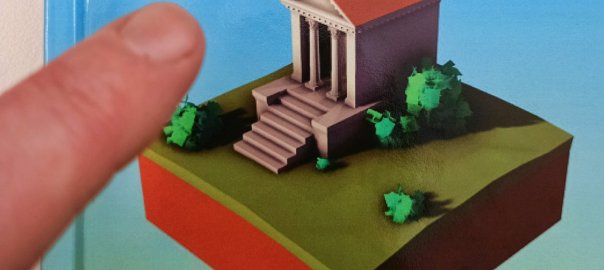
New Book Out In The Wild
I know I have talked about it enough but I finally have a hardcover copy in my hands…

Rethinking Virtual Places
Published by: Indiana University Press
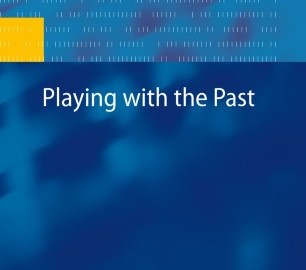
2nd edition, Playing With The Past, 2022
Today I agreed to complete a 2nd edition of “Playing With The Past” – Springer persuaded me there was a market for an updated book due to over 10,000 downloads. But I know there is *a lot* to update over the last 11 years. Sigh. Time for some surgically precise, concise, editing.
update: ‘Rethinking Virtual Places’ Proof Approved
I mentioned in the below post that I was on the home stretch with this book (in the Indiana University Press Spatial Humanities series), final proof was approved by me this week. I also noticed it was over 107,000 words. Thanks to Dean and Professor Marc Aurel Schnabel for the comments on the back.
“An essential contribution to a very current topic.” —Marc Aurel Schnabel, Victoria University of Wellington
If anyone wishes to review or consider ‘Rethinking Virtual Places‘ for courses please contact Indiana University Press or email me.

Virtual Heritage: A Guide
“Virtual Heritage: A Guide” is published and open access!
Why did we write it? For all those interested in an introduction to virtual heritage, but facing steep purchase costs for academic books, so it is especially suitable for university undergraduate courses. Download what you need, for free.
And given it was written from go to whoa in less than a year and to a tight word limit, I am very grateful to the authors for their time…
Cite: Champion, E. M. (ed.) 2021. Virtual Heritage: A Guide. London: Ubiquity Press. DOI: https://lnkd.in/gNkNWiB. License: CC-BY-NC.
“Rethinking Virtual Places” can be ordered in September
Out in November, purchasable in September. Contact IUP for reviewer copies “Rethinking Virtual Places” (in the IUP Spatial Humanities series) https://iupress.org/9780253058355/rethinking-virtual-places
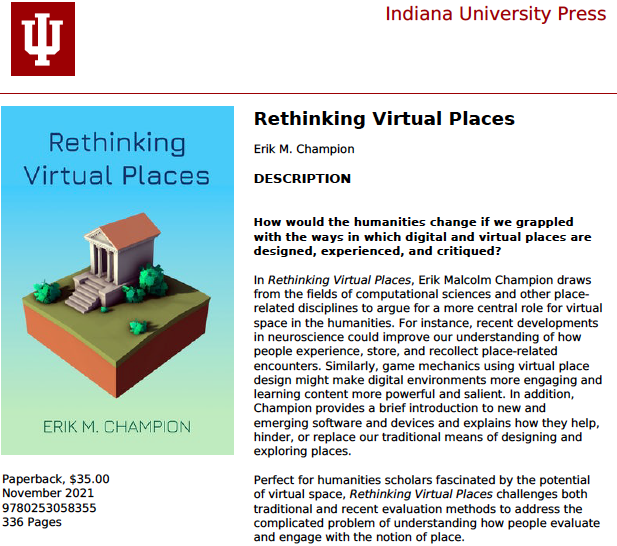
update: “Virtual Heritage: A Guide”
Dear Rosa and Andrea (and Michael)
Thanks to the colleagues and co-authors who helped inspired me to edit a concise book for students that will be open access (i.e. free PDF downloads).
Virtual Heritage: A Guide will be available on Thursday 22 July 2021 at https://www.ubiquitypress.com
I’d appreciate any feedback from staff or students for future editions.

Virtual Heritage: A Guide
I have been informed, that if there are no major holdups the above will be available as a free online book from Ubiquity Press in July 2021. Cover image courtesy of Michael Carter.
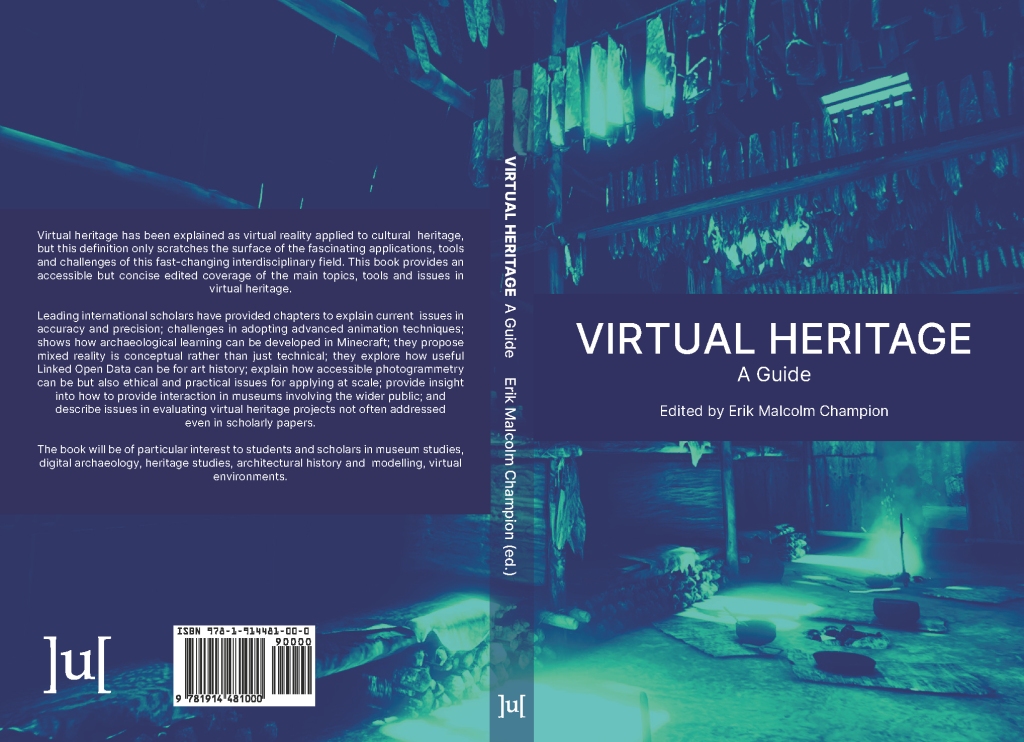
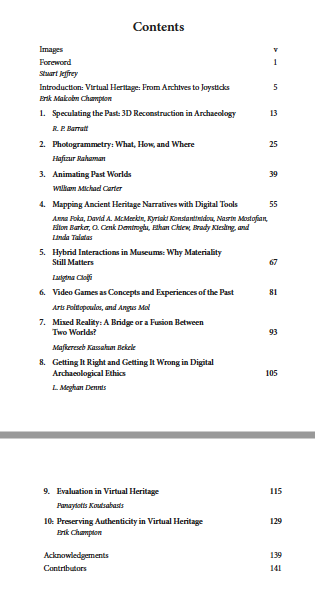
Immersive Literacy-Online Resource
For a Digital Learning Futures unit, I created a prototype website on gitbook with resources for Immersive Literacy (and XR via AFrame run and edited inside CodePen) as a potential teaching unit.
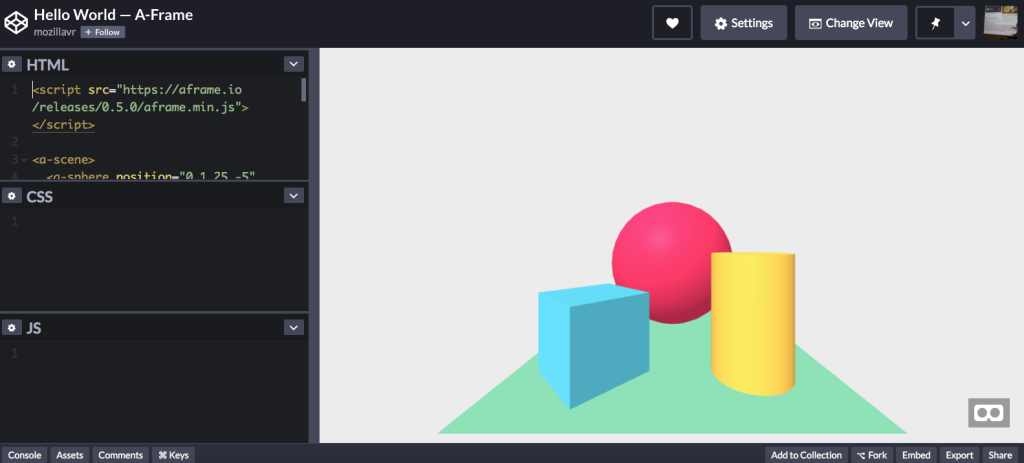
I also wrote a report (which won’t go online for now) but I’d like to thank the academics, students, teachers, librarians, and heritage practitioners, who provided feedback.

“Workshopping Board Games for Space, Place, and Culture” revised chapter, authored with Juan Hiriart, for “Playing Place” (edited by Medina Lasansky and Chad Randl, MIT Press) sent off today. Each chapter has a 1000 word limit, I believe. Took me some time to trim this! Great to work with Juan on a chapter, I think our different strengths blend well. When (or if?) the book appears on MIT Press I will add another post, the list of authors and topics looks really good, possibly essential reading if you are into boardgames, or are not, but want to know why so many people are …
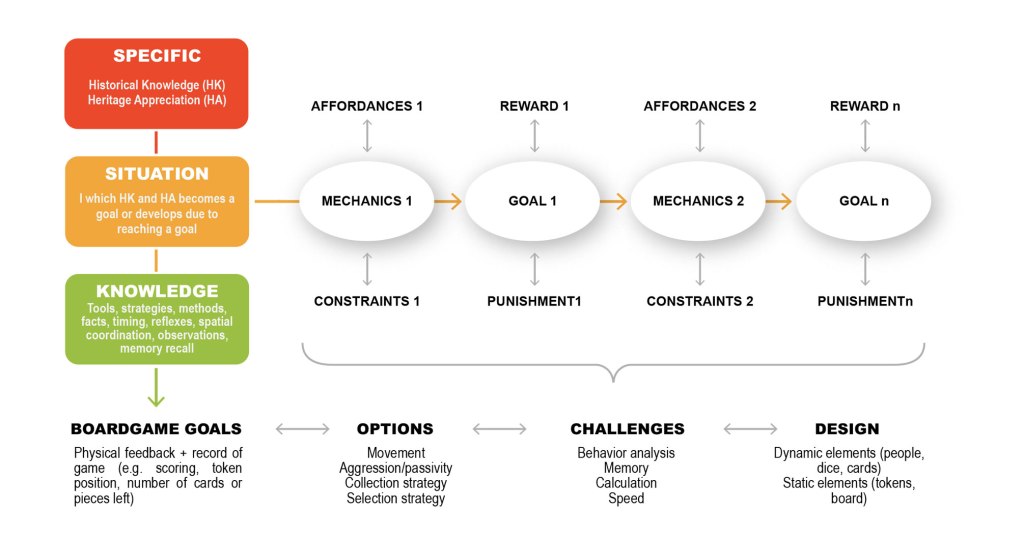
Workshopping Board Games for Space, Place, and Culture
Conveying built heritage values and historical knowledge through boardgame design may seem an odd decision. Communicating space, place, and culture through play is a challenge let alone through a medium inherently incapable of evoking the direct experience of inhabitation and architecture as a spatial art. Boardgames are engaging, social, quick to make, and fast to learn, intuitive or nuanced. From the complex to the spontaneous, boardgames can be effective, visceral tools for cultural immersion, challenging cultural assumptions and preconceptions, encouraging discussion and collaboration between players, provoking insight and enjoyment with simple props or intricate rules.
The following explains our experience hosting participative design workshops with historians, archaeologists, and heritage professionals. In small groups of three to four people, participants determine the design decisions, discussing and solving problems that often arise in an iterative process where historical research, game design, and play-testing both blend and butt heads.

2021: my year in print
What have I been doing this year? Playing a lot of piano, badly. But also (and I hope to add 2 journal articles and a book project and a serious game design project to this mix):
Invitations:
- Invited CI, ARC LIEF Grant LE210100021. $440,000. “Australian Cultural Data Engine for Research, Industry and Government.” Joining as a Chief Investigator, 26 April 2021. Led by Prof Rachel Fensham, Melbourne.
- Invited CI, Australian Research Data Commons (ARDC) platforms grant: Time-Layered Cultural Map of Australia 2.0 $100,000. 25/11/2020. https://ardc.edu.au/news/new-data-projects-will-help-transform-australian-research/
- Invited reviewer, Springer-Nature.
- Invited onto the European Science Foundation College of Expert Reviewers.
- Invited to speak to New South Wales Local Studies Librarians group, “Virtual heritage: tools, projects, hopes and challenges,” Zoom, 23 March 2021.
- Invited guest lecturer and tutor, Data Science Visualisation, Science & Engineering, Curtin University.
- Invited to Professor of Design interview panel, SUSTech, China, by Dean Thomas Kvan.
- Invited advisor for Swedish-Finnish grant application: PLATYPUS Engaging diverse publics through participatory play in heritage institutions, led by Uppsala University.
- Opening speaker, invited, webinar on smart tourism. ASEAN Australia Smart Cities Webinar Series Part 7: Promoting Smart Tourism Recovery via Virtual Reality. ZOOM webinar 2 March 2021. Organiser: Asian Development Bank.
- Invited to speak at University of Aberdeen Academic Forum and New South Wales Local Studies Librarians group-Zoom (date?).
- Interviewed for Canvas8 magazine. Quine, O. (2021). Are Britons ready for virtual holidays? canvas8. Retrieved from https://www.canvas8.com/content/2021/03/23/britons-virtual-holidays.html
- Interviewed by UNSW students on the subject of virtual tourism.
- Invited to co-chair the EuroMed2020 conference www.euromed2020.eu, Springer-Nature LNCS. Co-chairs include Professor Marinos Ioannides, ERA and UNESCO of Chair Digital Cultural Heritage, Mrs Eleanor Fink, USA, former Getty Digital Techs Director and inventor of Object-ID standard, Professor Lorenzo Cantoni from Switzerland, UNESCO Chair in ICT.
2021 PUBLICATIONS
Conference Proceedings (as Book):
- Ioannides, M., Fink, E., Cantoni, L., & Champion, E. (Eds.) (2021). Digital Heritage. Progress in Cultural Heritage: Documentation, Preservation, and Protection. 8th International Conference, EuroMed 2020, Virtual Event, November 2–5, 2020, Revised Selected Papers. DOI:10.1007/978-3-030-73043-7. ISBN 978-3-030-73043-7.
Published articles
- Rahaman, H., Johnston, M., & Champion, E. (2021). Audio-augmented arboreality: wildflowers and language. Digital Creativity, 1-16. https://doi.org/10.1080/14626268.2020.186853
- Champion, E. (2020). Culturally Significant Presence in Single-player Computer Games. Journal on Computing and Cultural Heritage, 13(4). DOI: 10.1145/3414831. https://dl.acm.org/doi/10.1145/3414831
- NB AWARD: in 2021 this paper won Virtual Archaeology Review Journal’s 2020 Paper of the Year. “Survey of 3D digital heritage repositories and platforms”, by Erik Champion and Hafizur Rahaman. DOI: https://doi.org/10.4995/var.2020.13226
Published Fully Referred Conference Papers
- Champion, E., Kerr, R., McMeekin, D., & Rahaman, H. (2020, 2-5 November 2020). Time-Layered Gamic Interaction with a Virtual Museum Template. Paper presented at the EuroMed 2020 Conference, Online/Cyprus. Revised Selected Papers. Springer-Nature. Published in 2021.
2021 Conference and Journal Reviewer
- Invited committee member, Australian Museums & Galleries Association (AMaGA) National Conference (Perth).
- Invited onto Program Board of Culture & Computing 2021 Conference, Springer ( HCI International).
- Invited reviewer, Springer-Nature Scientific Reports.
- Invited reviewer, the Journal of Open Archaeology (De Gruyter).
- Invited reviewer, CAA2021.
2021-22 PUBLICATIONS IN PRESS
Books in press
- Champion, E. (2021: November). Rethinking Virtual Places. Indiana University Press, Spatial Humanities series.
- Champion, E. (Ed). (2021: May). Virtual Heritage: A Guide. Ubiquity Press, London.
- Champion, E. (Ed). (2022: pending). Screen Tourism and Affective Landscapes.
- Champion, E., & Hiriart, J. (Eds.). (2022: in press). Assassin’s Creed in the Classroom, Museum, and Gallery: De Gruyter: Video games and the Humanities series, 18 chapters, 25 international authors.
Book Chapters in press
- Champion, E., Nurmikko-Fuller, T., & Grant, K. (2022: invited). Chapter 12 Alchemy and Archives, Swords, Spells, and Castles: Medieval-modding Skyrim. In R. Houghton (Ed.), Games for Teaching, Impact, and Research UK: De Gruyter.
- Champion, E., & Hiriart, J. (2022). Workshopping Board Games for Space Place and Culture. In M. Lasansky & C. Randl (Eds.), Playing Place: Board Games, Architecture, Space, and Heritage. Cambridge, Massachusetts, USA: MIT Press.
- Champion, E. (2022). Reflective Experiences with Immersive Heritage: A Theoretical Design-Based Framework. In A. Benardou & A. M. Droumpouki (Eds.), Difficult Pasts and Immersive Experiences. London, UK: Routledge.
- Champion, E. (2022). Not Quite Virtual: Techné between Text and World. In B. Mauer & A. Salter (Eds.), Reimagining the Humanities. Anderson, South Carolina, USA: Parlor Press.
- Champion, E. (2021: pending). Biodiversity and Cultural Diversity: Virtual opportunities. In E. Wandl-Vogt (Ed.),Biodiversity in connection with Linguistic and Cultural Diversity. Vienna, Austria.
- Champion, E. (2021: pending). Workshopping Game Prototypes for History and Heritage. In Digital Humanities book, Politecnico di Torino, Italy. Aracne Publishing Company. Chapter.
Conference activities to take place
- Wright, H., et al., 2021. S12: Digital Infrastructures and New (and Evolving) Technologies in Archaeology (Roundtable). CAA2021: Digital Crossroads. Cyprus/Online. https://2021.caaconference.org/sessions/ 14-18 June.
3 chapters to go
With 2 books in press, an edited book in the preview chapter- due-a-few-months-away stage, am now trying to clear my desk and have the two, no, three, below book chapters to finish (in dark red). Then, hopefully, can start a new manuscript for a major academic press (who I have not written a book for, yet, but they do seem interested).
Books and edited books in press or under review
- Champion, E. (2021: in press). Rethinking Virtual Places. Indiana University Press, Spatial Humanities series.
- Champion, E. (Ed). (2021: in press). Virtual Heritage: A Guide. Ubiquity Press, London.
- Champion, E., Stadler, J. and Peaslee, R. (Eds.). (2022: pending). Screen Tourism and Affective Landscapes.
- Champion, E., & Hiriart, J. (Eds.). (2022: in press). Assassin’s Creed in the Classroom, Museum, and Gallery. De Gruyter: Video games and the Humanities series, 18 chapters, 25 international authors.
Book Chapters in press
- Champion, E., Nurmikko-Fuller, T., & Grant, K. (2022: pending, invited). Blue Sky Skyrim VR: Immersive Techniques to Engage with Medieval History. In R. Houghton (Ed.), Games for Teaching, Impact, and Research UK: De Gruyter. Abstract accepted, full chapter due March 2021.
- Champion, E. (2022). Reflective Experiences with Immersive Heritage: A Theoretical Design-Based Framework. In A. Benardou & A. M. Droumpouki (Eds.), Difficult Pasts and Immersive Experiences. London, UK: Routledge.
- Champion, E. (2022). Swords Sandals and Selfies: The Videogame Tourist Landscape. For Champion, E., Stadler, J. and Peaslee, R. (Eds.). (2022: pending). Screen Tourism and Affective Landscapes.
- Champion, E. (2021: pending). Biodiversity and Cultural Diversity: Virtual opportunities. In E. Wandl-Vogt (Ed.), Biodiversity in connection with Linguistic and Cultural Diversity. Vienna, Austria.
- Champion, E. (2021: under review). Not Quite Virtual: Techné between Text and World” In Texts & Technology: Inventing the Future of the Humanities, edited by Anastasia Salter and Barry Mauer, University of Central Florida, Orlando Florida USA. Chapter.
- Champion, E. (2021: under review). Workshopping Game Prototypes for History and Heritage. In Digital Humanities book, Politecnico di Torino, Italy. Aracne Publishing Company. Chapter.
- Champion, E., & Hiriart, J. (2021: pending). Workshopping Board Games for Space Place and Culture. In C. Randl & M. Lasansky (Eds.), Playing Place: Board Games, Architecture, Space, and Heritage.
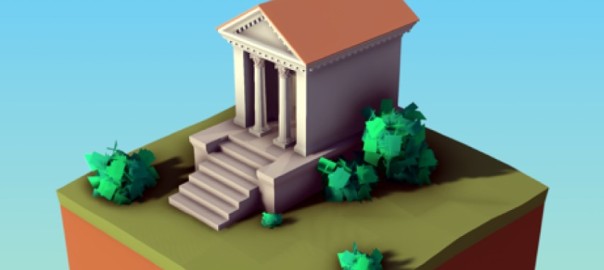
Books on the way (I think)..
Books to be on the way
- Champion, E. (2021: in press). Rethinking Virtual Places. Indiana University Press, Spatial Humanities series. In a week they should be sending me the first proof.
- Champion, E. (Ed). (2021: in press). Virtual Heritage: A Guide. Ubiquity Press, London. All the chapters have been sent to the publisher and they go to print very quickly, in my experience. Open Access.
- Lee, C. & Champion, E. (Ed). (2022: pending). Screen Tourism and Affective Landscapes. This is still under consideration but some authors have already sent complete chapters so I think it is just a case of helping out my overloaded co-editor. Oh and overcoming field trips stopped by Covid.
- Champion, E., & Hiriart, J. (Eds.). (2022 (needs to be submited to academic review)). Assassin’s Creed in the Classroom, Museum, and Gallery: De Gruyter: Video games and the Humanities series. This is to be submitted but have very enthusiastic editor and series editors to help us complete it. For some reason I will particularly look forward to the reviews. 25 authors, 19 chapters, about 90,000 words and no grayscale image limits. We may have abstracts available in foreign languages. Ubisoft people may help us out as well, they have been very supportive so far.
Assassin’s Creed in the Classroom Book Project
I have started an 18 chapter 25 author edited book project with De Gruyter (Video Games and the Humanities series) and Dr Juan Hiriart as co-editor. I hope to publish it in 2022. Confirmed authors are from Canada, USA, the Netherlands, Germany, Belgium, Finland, Australia, New Zealand, and the UK. The aim is to explain how the Ubisoft Assassin’s Creed Series can and has and could be used in the classroom, museum, or gallery (or as escape space). De Gruyter and Ubisoft historians have been very encouraging. I’d love contributions from the Caribbean or Middle East but very happy with what we have going forward.
There is some possibility of related online learning materials being made available.
Assassin’s Creed in the Classroom, Museum and Gallery
Alternative title: Assassin’s Creed: History’s Playground or a Stab in the Dark?
NB This is not the final chapter order.
- Ubisoft’s Archaeology And History-Making: From The Inside
- Using The Assassin’s Creed Discovery Tours In The Classroom: A Tutorial
- Creation Of Teacher Curriculum Guides For The Assassin’s Creed Discovery Tour Games To Improve Teachers’ TPCK And TAM
- Gaming The Classroom: Assassin’s Creed Odyssey As A Learning Tool For First Year Undergraduates
- Understanding Problems Of Historical Writing Through Historical Videogame Design
- Preparing High School Students For An Academic Trip To Greek Archaeological Sites By Using The Ubisoft Discovery Tour On Ancient Greece
- Assassin’s Creed Odyssey And Its Use In The Context Of The Archaeological Museum In Muenster (Germany)
- Viking Life: Using Assassin’s Creed Valhalla Settlements To Teach Social History And Everyday Life In School Classrooms
- Living Through The Animus: Conceptualizing Playful Time Travel In The Classroom
- Christian Vikings Storming Templar Castles: Anachronism As A Teaching Tool
- The Discovery Tour And Historical Characters In Ancient Greece
- An Unholy Alliance? Ubisoft And The Future Of Archaeological (Re)Animation
- Classical Creations In A Modern Medium
- Discovering The Past As A Virtual Foreign Country: Assassin’s Creed As Historical Tourism
- Assassin’s Creed @ The Carlos: Merging Videogames And Education At The Michael C. Carlos Museum
- Learning The Past By Walking Through Biomes
- Historical Video Games And Teachers Practices In French-Speaking Secondary Schools In The Montreal Metropolitan Area
- Religion Is History: Teaching Religion To Postsecular Audiences
Virtual Heritage: A Guide
I am not sure this will be the final title but just finished (I hope) my editing for the following open access 10 chapter book: Virtual Heritage: A Guide, Ubiquity Press 2021.
Table of contents:
| Foreword | Stuart Jeffrey | |
| Virtual Heritage: from Archives to Joysticks | Ear Zow Digital | |
| 1 | Speculating the Past: 3D Reconstruction in Archaeology | R. P. Barratt |
| 2 | Photogrammetry: What, How and Where | Hafizur Rahaman |
| 3 | Animating the Past | Michael Carter |
| 4 | Mapping Ancient Heritage With Digital Tools | Anna Foka, David McMeekin, Kyriaki Konstantinidou, Nasrin Mostofian, Elton Barker, Cenk Demiroglu, Ethan Chiew, Brady Kiesling |
| 5 | Hybrid Interactions in Museums: Why Materiality Still Matters | Luigina Ciolfi |
| 6 | Video Games as concepts and experiences of the past | Aris Politopoulos, Angus Mol |
| 7 | Mixed Reality: A Bridge or a Fusion between Two Worlds? | Mafkereseb Bekele |
| 8 | Getting it Right and Getting it Wrong in Digital Archaeological Ethics | L. Meghan Dennis |
| 9 | Evaluation in Virtual Heritage | Panayiotis Koutsabasis |
| 10 | Preserving Authenticity in Virtual Heritage | Ear Zow Digital |
Virtual Archaeology Review’s Paper of the Year
Virtual Archaeology Review declared my and Dr Rahaman’s 2020 paper “Survey of #3D digital heritage repositories and platforms” their paper of the year.
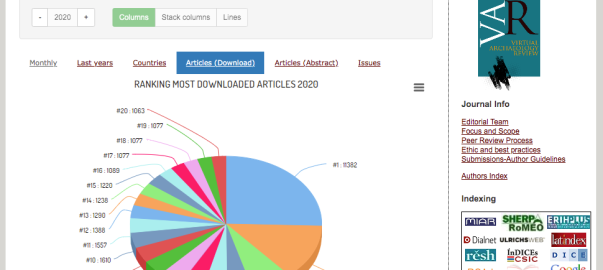
Article popularity
I am impressed that the Virtual Archaeology Review Journal (@VARjournal) has a stats page with % comparing views to downloads and abstracts listed (and a 3D -model- filter!) It can help authors check their abstract is on target (i.e. catchy). Our (with Dr Hafizur Rahaman @hafi2018) 2020 article Survey of 3D digital heritage repositories and platforms was 6th most downloaded article (3rd for 2020). NB had trouble viewing, had to refresh several times.
CHAMPION, Erik; RAHAMAN, Hafizur. Survey of 3D digital heritage repositories and platforms. Virtual Archaeology Review, [S.l.], v. 11, n. 23, p. 1-15, July 2020. ISSN 1989-9947. Available at: <https://polipapers.upv.es/index.php/var/article/view/13226>. Date accessed: 04 Jan. 2021. doi:https://doi.org/10.4995/var.2020.13226.
